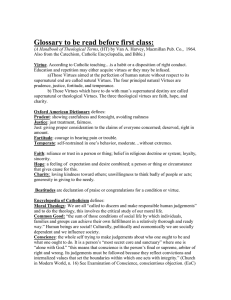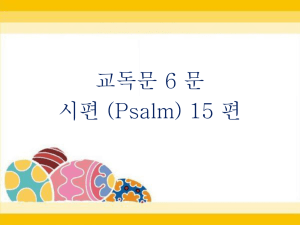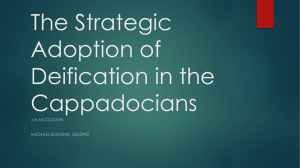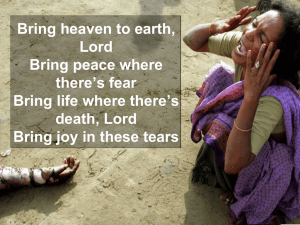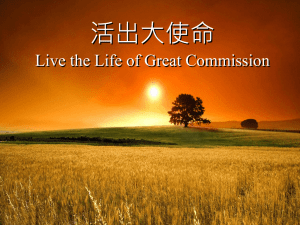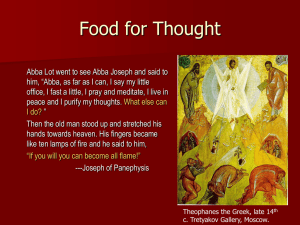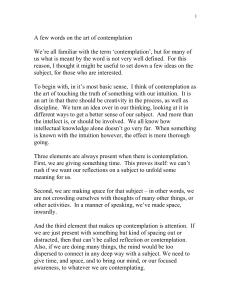Three Stages
advertisement
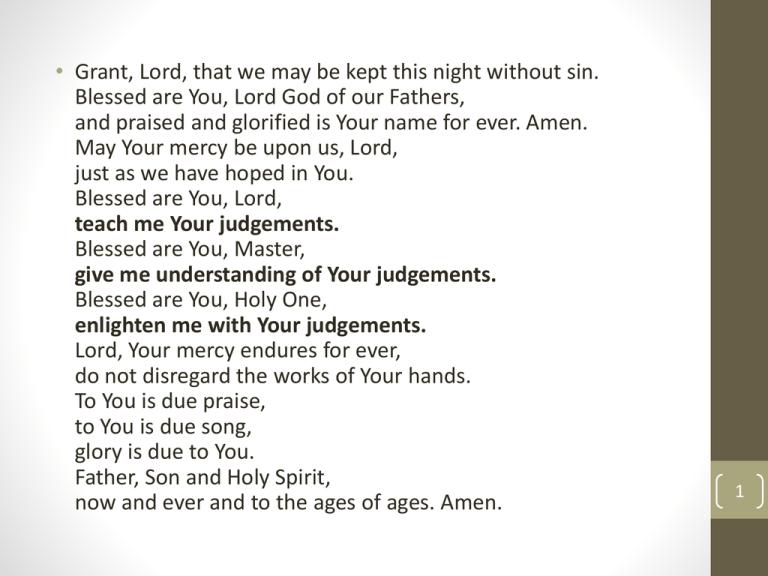
• Grant, Lord, that we may be kept this night without sin. Blessed are You, Lord God of our Fathers, and praised and glorified is Your name for ever. Amen. May Your mercy be upon us, Lord, just as we have hoped in You. Blessed are You, Lord, teach me Your judgements. Blessed are You, Master, give me understanding of Your judgements. Blessed are You, Holy One, enlighten me with Your judgements. Lord, Your mercy endures for ever, do not disregard the works of Your hands. To You is due praise, to You is due song, glory is due to You. Father, Son and Holy Spirit, now and ever and to the ages of ages. Amen. 1 Revd Dr Doru Costache Senior Lecturer in Patristics, SAGOTC Kogarah Fellowship 12 / 03 / 12 Three Stages Walking the Spiritual Path The beginning of all becoming • The Christian lifestyle as a life-changing experience • The leap of faith or the beginning of the transformative process • Faith as change of mentality adopting a new, Christcentred and Christ-like worldview 3 Walking the path • The Christian lifestyle as a dynamic process or reorientation, an ‘adventure’ (getting somewhere) • Faith is the premise of the journey but actually walking the path is what makes the journey an adventure 4 The method • The journey is impossible without guidelines or a method • Ecclesial tradition provides us with the necessary method yet the latter is useless without a genuine faith commitment 5 Three stages • The idea of a gradual progress in the Christian life is omnipresent within tradition • Catechism – illumination – progress • Baptism – wedding/monastic tonsure – ordination • The Byzantine prayer “Grant, Lord”: learning – understanding – reaching enlightenment • Origen the Alexandrine observed a similar pattern in three Old Testament books: Proverbs – Ecclesiastes – The Song of Songs 6 Three stages • The main Byzantine spiritual traditions held the three-stage pattern as central: • Evagrius Ponticus: praxis – theory – theology • St Dionysius the Areopagite: purification – contemplation – illumination 7 Three stages • Purification = an active change of life by the practice of virtues • Contemplation = renunciation to false interpretations, sharpening of one’s discernment • Illumination = reaching perfection, theosis/deification 8 Three stages Days 1-3 Days 4-6 • Origen, First Homily on Genesis: • The first three days of creation: separations, putting behind the old self • The next three days of creation: embellishing of life by virtue and contemplation • The seventh day of creation: deification, resting in God Day 7 9 A misunderstanding • The three stages are represented sometimes as a gradual process of accumulation of virtues, which ultimately leads to theosis (i.e. purification + contemplation = deification) Catharsis Theory Theosis 10 A source of misunderstanding • St Dionysius defined theosis as likeness and union • Likeness = acquiring of virtues • Union = participation in God Likeness Union Theosis 11 A corrective • St Maximus the Confessor distinguishes between what is natural and what is supernatural in the states of perfection experienced by the saints: • ‘Natural’ are the virtuous and contemplative efforts • ‘Supernatural’ is the actual deification, understood as a culminating union with God Natural: virtue & contemplation Supernatural: deifying grace 12
